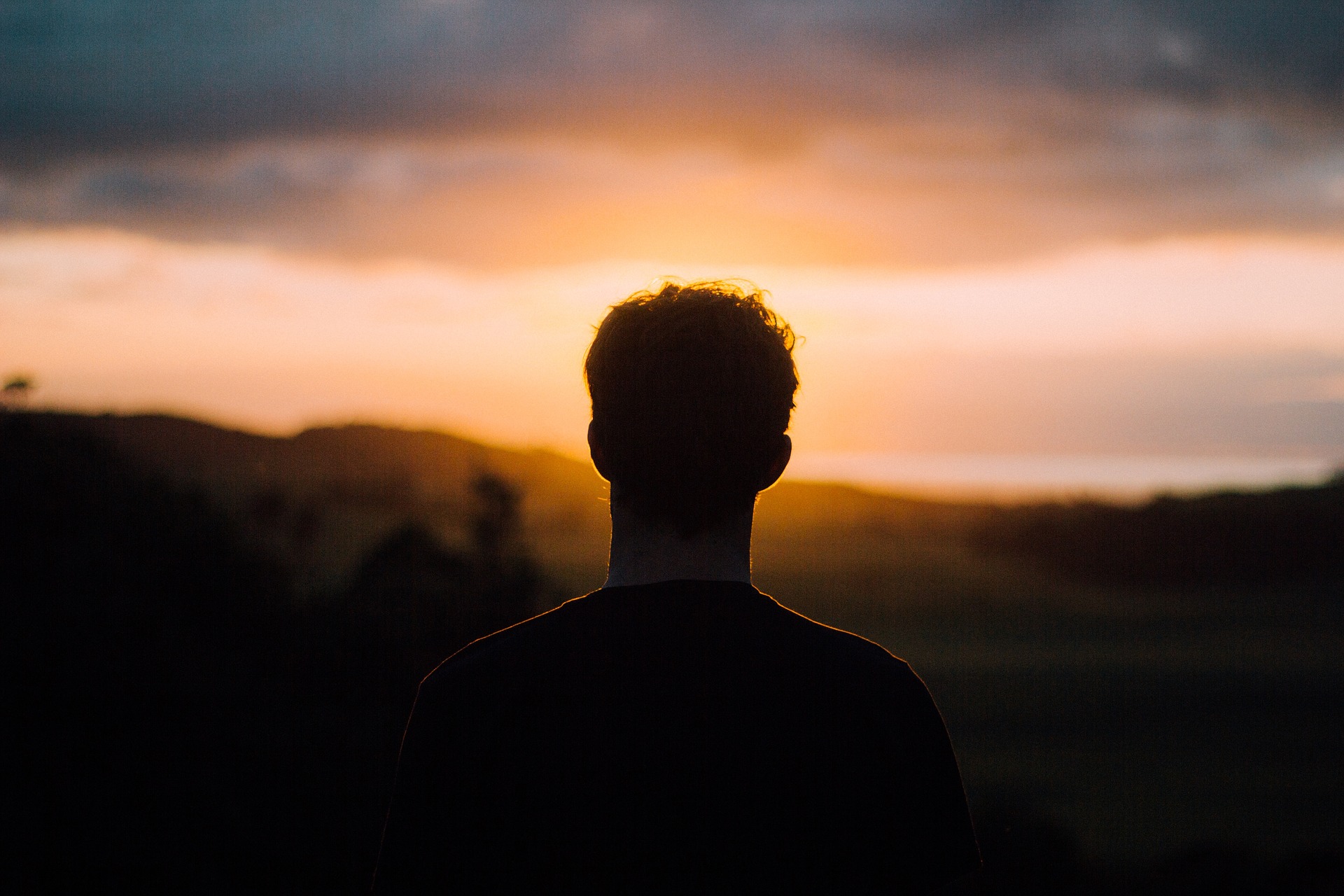
Find the whole #TravelswithmyMonkey series here
<<Previous post: 7 Reasons Why the Present Moment is the Best Place to Be
About twelve years ago I discovered something important about myself. I was a recent graduate working my first “proper” job as a teaching assistant, I was engaged, and I was struggling with obsessive, intrusive thoughts and anxiety. I learnt a lesson during this time that I have used as a mental health survival strategy ever since.
What I discovered had to do with the natural rise and fall of my moods. I noticed that most days there was a time when my mood was OK, and everything seemed a lot brighter and more manageable. Then inevitably my mood would dip, my problems would grow and intensify and I would feel compelled to try to tackle them as a matter of urgency. Once I noticed this pattern, I tried to take myself less seriously during low moods, trusting that once my mood lifted, things would seem OK again. It really worked. The more it worked, the more I trusted that my mood would lift and the easier it became. And by resisting the temptation to try and fix everything when in that low mood, I was actually speeding up the process, and good moods began to arise more frequently and to last longer.
As I said, I have been using this tactic ever since. It sounds so obvious, but there is nothing easy about ignoring your own thoughts, especially when you are feeling low.
In 2015 I first wrote about this idea of paying attention to my moods, and the way I thought about it then still resonates.
(The original post opened with some now outdated current affairs references, but the gist of it was that our quality of life is for the most part – outwardly at least – better than any humans in history, and that if you are reading this there’s a good chance that you are fairly well off by global standards today.)
Handing over now to 2015-me:
We are SO lucky.
So why does it hardly ever feel like it?
It makes me quite ashamed actually. But I think it’s just a weird part of being human; a sort of blindness, an inability to appreciate what we have or to see things in perspective. Everything is relative and we quickly lose sight of the bigger picture.
Muddy Windscreens
It’s like we are all driving in our little cars around the edge of this astoundingly beautiful crystal clear lake surrounded by breath-taking, snow-capped mountains beneath an endless azure sky… but we’ve been driving so long that the windows are completely caked in mud and we can’t see a thing.
Occasionally something happens that wakes us up, we drive under a waterfall (because lakes have waterfalls) and suddenly we can see reality in all its glory. Often it takes something bad to happen – someone getting seriously ill or being involved in a serious accident – to make us wake up, stop examining the specks of dust on our windscreens and appreciate the things that actually matter.
Moods
In my day to day life I now notice what a massive impact my moods have on me, and it’s quite scary. When I’m in a good mood I feel like my windscreen wipers are on and I’m able to see things in perspective. I feel relaxed, thankful and open minded, and I am understanding and sympathetic towards others. Life feels easy and if I hit a bump in the road I laugh it off and carry on.
When I’m in a bad mood I am impatient, irrational, irritable and closed minded. I can’t see out of the car at all so I try to fix the problem by examining each speck of dust on the dashboard and in the glove compartment. After a while it rains, the windows clear a little and things start to look brighter again. It genuinely feels as if the world has changed, not just my mood.
Around the time I got engaged I was massively freaking out about nothing in particular; one minute I was enjoying the scenery and everything seemed wonderful, and the next minute something ridiculously trivial would trigger a huge emotional breakdown. I wouldn’t be able to see out of my own bad mood at all, and naturally I would want to pinpoint the reason, analyse it and try to fix it.
I gradually became better at understanding the nature of moods and learnt not to take myself so seriously during bad ones. This, along with recognising that my thoughts aren’t real, is one of the most important things I’ve ever learnt to do, and has helped to lift me out of some really dark places (all entirely imaginary of course).
I feel I am coming to the end of the road with the car analogy so let’s try another one…
Storm Clouds
I started to imagine that when I was in a bad mood a big dark cloud was surrounding my head, pelting down negative thoughts like giant hailstones. If I paid too much attention to them they would usually grow even bigger, but if I managed to ignore them long enough eventually the storm cloud would pass over and everything would feel OK again.
It is really, really difficult to ignore your own thoughts, particularly if you feel like the storm cloud has been following you for months. But I’ve found that with practice it really does get a lot easier, and the sky gradually becomes clearer. At the moment my best moods tend to occur in the morning when I’m fuelled up on coffee. I will have a dip in mood between about 2pm and 5pm (when the caffeine’s worn off), where I will start thought-swatting again until teatime when everything starts looking better.
I actually started writing this post two days ago at about 3pm, as it was the only time when both kids were asleep. I was struggling to find inspiration, and getting frustrated as I wanted to publish it that evening. I started wondering why I was even writing the stupid thing in the first place, surely no-one was interested and everyone would think I was weird. I felt determined to get it done though, surely I was feeling bad because I wasn’t writing well enough and just had to try harder. I was doing this for about an hour before I realised I was trying to write about bad moods whilst in a bad mood. I started again this morning and it feels completely different and so much easier. This afternoon I know I will feel a bit low so I will do something else, get on with thought-swatting and wait for my bad mood to pass like I would a headache.
The world hasn’t changed, despite what my mind is telling me – it’s just that sometimes I can’t see through the clouds.
P.S. I need to make one thing very clear: if you are struggling with a mental health issue of any kind, find someone to talk to. Seek help. You are definitely not alone, and there are qualified professionals who are used to dealing with precisely the sort of thing you are experiencing. I am a massive believer in the benefits of education and self-help when it comes to mental health, but this should never replace professional, medical help when its needed. (Note: Of course, any muppet can write a self-help book. Discretion required.) Think of it this way: we can learn how to stay healthy by vacating the sofa once in a while and easing off the Dunkin’ Donuts, but that doesn’t mean we don’t go to the doctor when we think something’s not right. Same thing with mental health. Learning to help ourselves is crucial, but so is being unashamed to seek outside help when we need it.
If you are struggling, BetterHelp is great online counselling platform that gives you access to a licensed counsellor any time, anywhere via online chat, video or phone. As a more affordable and more flexible option than traditional counselling it’s a valuable resource for this time we find ourselves in.
Find the whole #TravelswithmyMonkey series here
<<Previous post: 7 Reasons Why the Present Moment is the Best Place to Be
Images via Pixabay











